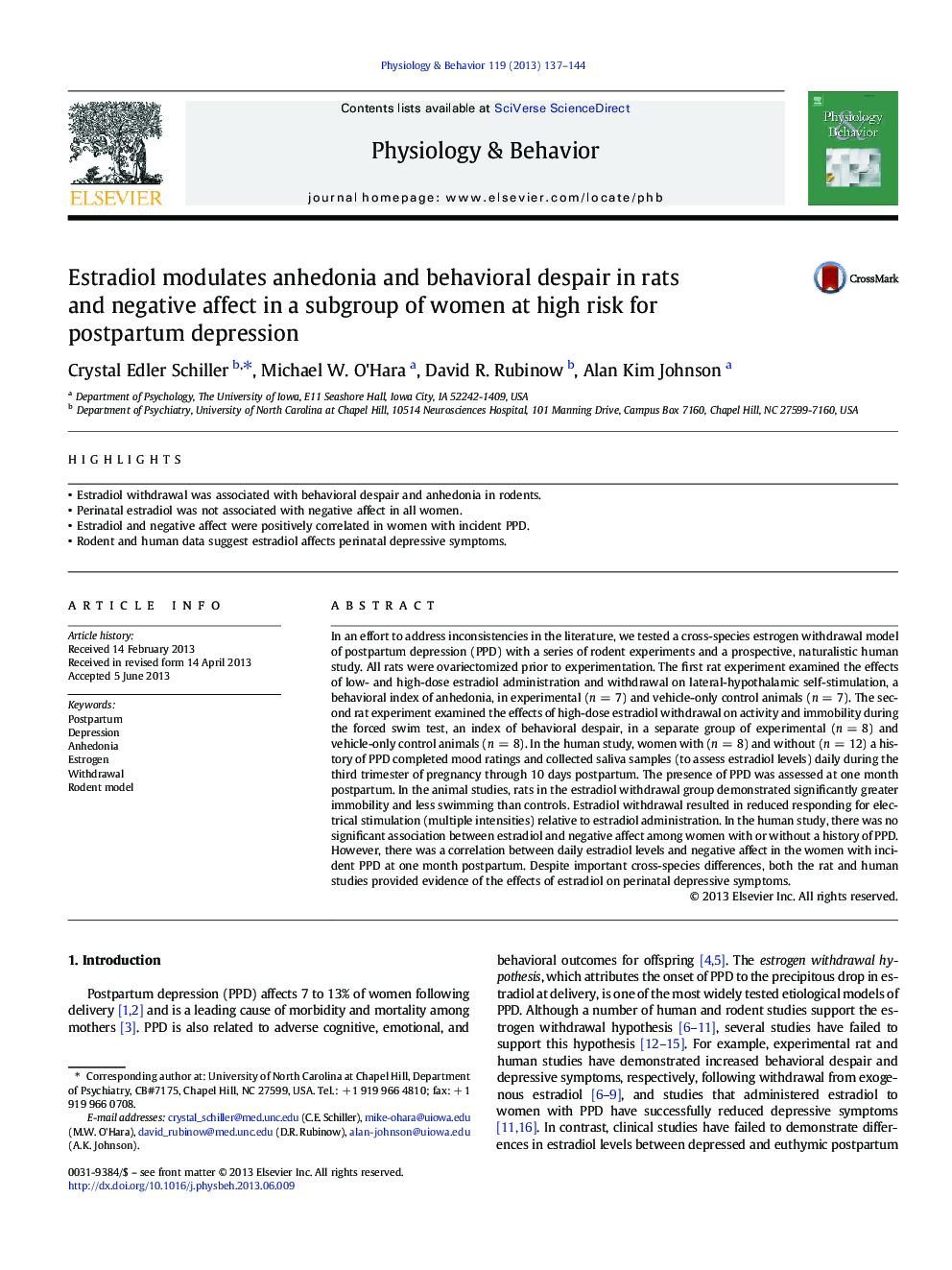| کد مقاله | کد نشریه | سال انتشار | مقاله انگلیسی | نسخه تمام متن |
|---|---|---|---|---|
| 5924796 | 1571198 | 2013 | 8 صفحه PDF | دانلود رایگان |
- Estradiol withdrawal was associated with behavioral despair and anhedonia in rodents.
- Perinatal estradiol was not associated with negative affect in all women.
- Estradiol and negative affect were positively correlated in women with incident PPD.
- Rodent and human data suggest estradiol affects perinatal depressive symptoms.
In an effort to address inconsistencies in the literature, we tested a cross-species estrogen withdrawal model of postpartum depression (PPD) with a series of rodent experiments and a prospective, naturalistic human study. All rats were ovariectomized prior to experimentation. The first rat experiment examined the effects of low- and high-dose estradiol administration and withdrawal on lateral-hypothalamic self-stimulation, a behavioral index of anhedonia, in experimental (n = 7) and vehicle-only control animals (n = 7). The second rat experiment examined the effects of high-dose estradiol withdrawal on activity and immobility during the forced swim test, an index of behavioral despair, in a separate group of experimental (n = 8) and vehicle-only control animals (n = 8). In the human study, women with (n = 8) and without (n = 12) a history of PPD completed mood ratings and collected saliva samples (to assess estradiol levels) daily during the third trimester of pregnancy through 10 days postpartum. The presence of PPD was assessed at one month postpartum. In the animal studies, rats in the estradiol withdrawal group demonstrated significantly greater immobility and less swimming than controls. Estradiol withdrawal resulted in reduced responding for electrical stimulation (multiple intensities) relative to estradiol administration. In the human study, there was no significant association between estradiol and negative affect among women with or without a history of PPD. However, there was a correlation between daily estradiol levels and negative affect in the women with incident PPD at one month postpartum. Despite important cross-species differences, both the rat and human studies provided evidence of the effects of estradiol on perinatal depressive symptoms.
Journal: Physiology & Behavior - Volume 119, 2 July 2013, Pages 137-144
